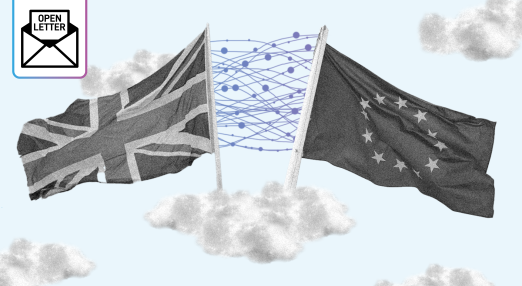16 countries burned Poland’s bridges on the CSA Regulation: What now?
Poland’s surprising compromise to ease the deadlock on the CSA Regulation – which has been stuck in the Council of EU Member States for the past three years – met with failure. This blog recaps the Polish compromise, the positions of the Member States on the proposal, and what it could mean for the future of one of the most criticised EU laws of all time.
Filter resources
-

16 countries burned Poland’s bridges on the CSA Regulation: What now?
Poland’s surprising compromise to ease the deadlock on the CSA Regulation – which has been stuck in the Council of EU Member States for the past three years – met with failure. This blog recaps the Polish compromise, the positions of the Member States on the proposal, and what it could mean for the future of one of the most criticised EU laws of all time.
Read more
-

A missed opportunity for enforcement: what the final GDPR Procedural Regulation could cost us
After years of debate, the GDPR Procedural Regulation has been finalised. Despite some improvements, the final text may entrench old problems and create new ones, undermining people’s rights and potentially opening the door to weakening the GDPR itself.
Read more
-

All Eyes on my Period? Period tracking apps and the future of privacy in a post-Roe world
Privacy International investigated eight of the most popular period-tracking apps to analyse how they function and process users’ reproductive health data. Their findings raised concerns for users’ privacy, given the sensitive nature of the health data involved. These findings come within the context of the global roll back on reproductive rights and fears over law enforcement forcing apps to hand over data.
Read more
-

UK data adequacy under scrutiny: civil society warns EU not to reward deregulation disguised as ‘simplification’
Civil society organisations, including EDRi and EDRi members Open Rights Group and Privacy International, are urging the European Commission not to re-adopt the UK’s data adequacy decisions without meaningful reform. The UK’s rollback of protections under the guise of ‘simplification’ puts the level of protection required by the General Data Protection Regulation (GDPR) and Court of Justice of the European Union (CJEU) case law at risk and exposes the Commission’s decisions to legal challenge.
Read more
-

Sweden further cracks down on sex workers: What it means for digital rights
Despite overwhelming opposition from civil society, academic experts, and sex workers, the Swedish Parliament voted to adopt a law that expand the criminalisation of sex work. This will have have a chilling effect nationally and internationally, and affect digital rights.
Read more
-

When data never dies: How better GDPR enforcement could minimise hate and harm
Lax enforcement of the GDPR has had far-reaching consequences for many people and collectives in the EU, especially those most vulnerable. Through a story based on real life experiences of people, this blog highlights the gap between the GDPR’s promise of protection and its current reality of weak enforcement, and the opportunity EU lawmakers have with the ongoing GDPR Procedural Regulations to take bold steps to protect our data rights.
Read more
-

The Security Playbook
EDRi affiliate SUPERRR is challenging “Security Theater” as a societal maneuver.
Read more
-

Apple and the long secret arm of the UK Government
Apple disabled their 'advanced data protection' service for UK customers following a secret UK Government order demanding access to global user data. EDRi member Privacy International criticises this weakening of security standards for users in the United Kingdom.
Read more
-

Poland searches for silver bullet for CSA Regulation
The Polish Council Presidency attempts to break the deadlock on the controversial 'Chat Control' proposal. We analyse the new approach and what could happen if Member States approve it.
Read more
-

Why the new Europol regulation is a Trojan Horse for surveillance
The EU Commission’s proposal for a new Europol Regulation as part of the recast of the ‘Facilitator’s Package’ is a pretext for unchecked expansion of power and resources for Europol, the EU’s policing agency, at the expense of those they claim to protect.
Read more
-

The ePrivacy Regulation proposal has been withdrawn, but the fight for your privacy is far from over
The European Commission's withdrawal of the ePrivacy Regulation proposal is a major setback for privacy rights in Europe, driven by pressure from industry interests and national security concerns. However, EDRi remains committed to advocating for stronger privacy protections, challenging commercial and state surveillance in future legislative efforts.
Read more
-

12 civil society organisations tell delivery platforms it’s time to deliver answers on how they use algorithms to manage their workers
EDRi member Privacy International and more digital rights groups, together with trade unions, call out food delivery platforms for their algorithmic management of workers. In an open letter co-signed by 12 organisations, they make three clear recommendations for the platforms to improve.
Read more
